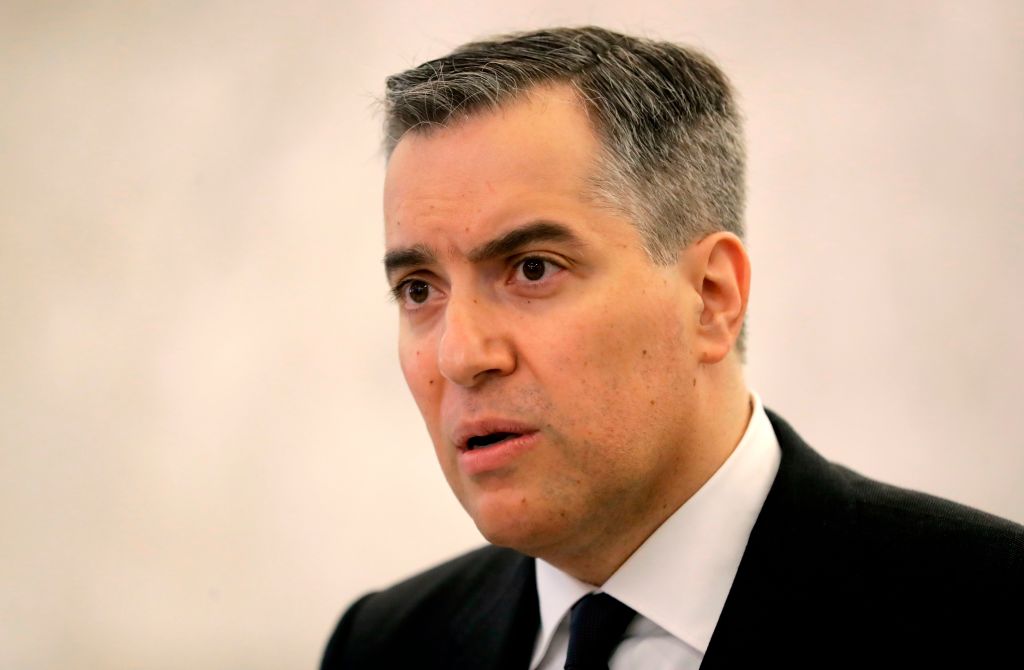Lebanon's prime minister-designate resigns after he was unable to form a new cabinet


A free daily email with the biggest news stories of the day – and the best features from TheWeek.com
You are now subscribed
Your newsletter sign-up was successful
Mustapha Adib, Lebanon's prime minister-designate, resigned Saturday after he was unable to form a non-partisan cabinet in the aftermath of the Beirut port explosion in August that killed around 200 people and left thousands homeless, prompting the last cabinet to step down amid accusations of corruption and neglect.
Even before the blast, Lebanon was struggling with ongoing political and economic crises. Adib, who was designated prime minister at the end of August, was reportedly trying to move away from Lebanon's sectarian-based system of government and "create a government of experts" to address the crises, but his efforts reportedly ran into trouble when two of Lebanon's dominant Shia parties, Hezbollah and the Amal Movement, insisted "they wanted the finance minister portfolio."
Adib's resignation also hinders French President Emmanuel Macron's controversial efforts to break Lebanon's political stalemate. Macron's initiative gave the country's political parties 15 days to nominate a cabinet of independent experts, The Financial Times reports, and afterward, France would convene an international pledging conference in October. Paris' attempt to intervene in Lebanon was not well received by everyone, given that France ruled the country for around two decades after the Ottoman Empire fell, but Macron's plan does have support within Beirut's political system, and leading Sunni Muslim politician Saad al-Hariri said Saturday that "those who applaud" the initiative's collapse "will bite your fingers in regret." Read more at Al Jazeera and The Financial Times.
The Week
Escape your echo chamber. Get the facts behind the news, plus analysis from multiple perspectives.

Sign up for The Week's Free Newsletters
From our morning news briefing to a weekly Good News Newsletter, get the best of The Week delivered directly to your inbox.
From our morning news briefing to a weekly Good News Newsletter, get the best of The Week delivered directly to your inbox.
A free daily email with the biggest news stories of the day – and the best features from TheWeek.com
Tim is a staff writer at The Week and has contributed to Bedford and Bowery and The New York Transatlantic. He is a graduate of Occidental College and NYU's journalism school. Tim enjoys writing about baseball, Europe, and extinct megafauna. He lives in New York City.
-
 The Week Unwrapped: Do the Freemasons have too much sway in the police force?
The Week Unwrapped: Do the Freemasons have too much sway in the police force?Podcast Plus, what does the growing popularity of prediction markets mean for the future? And why are UK film and TV workers struggling?
-
 Properties of the week: pretty thatched cottages
Properties of the week: pretty thatched cottagesThe Week Recommends Featuring homes in West Sussex, Dorset and Suffolk
-
 The week’s best photos
The week’s best photosIn Pictures An explosive meal, a carnival of joy, and more
-
 British warship repels 'largest Houthi attack to date' in the Red Sea
British warship repels 'largest Houthi attack to date' in the Red SeaSpeed read Western allies warn of military response to Iranian-backed Yemeni rebels if attacks on ships continue
-
 Houthi rebels claim Red Sea ship attacks
Houthi rebels claim Red Sea ship attacksspeed read Iran-backed Yemeni group vows to escalate aggression towards Israel-linked vessels in revenge for Gaza war
-
 Israel plans next phase of Gaza war as first hostages released
Israel plans next phase of Gaza war as first hostages releasedSpeed read After four-day ceasefire 'we will not stop' until destruction of Hamas, says Israel
-
 Mob storms Russian airport 'looking for Jews'
Mob storms Russian airport 'looking for Jews'Speed Read Plane from Israel surrounded by rioters chanting antisemitic slogans after landing in Russia's Dagestan region
-
 Tuberville's military promotions block is upending lives, combat readiness, 3 military branch chiefs say
Tuberville's military promotions block is upending lives, combat readiness, 3 military branch chiefs saySpeed Read
-
 Ukraine's counteroffensive is making incremental gains. Does it matter in the broader war?
Ukraine's counteroffensive is making incremental gains. Does it matter in the broader war?Speed Read
-
 US commissions first-ever Navy ship in a foreign port
US commissions first-ever Navy ship in a foreign portSpeed Read
-
 British spy chief, Wagner video suggest Prigozhin is alive and freely 'floating around'
British spy chief, Wagner video suggest Prigozhin is alive and freely 'floating around'Speed Read
